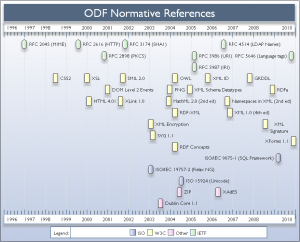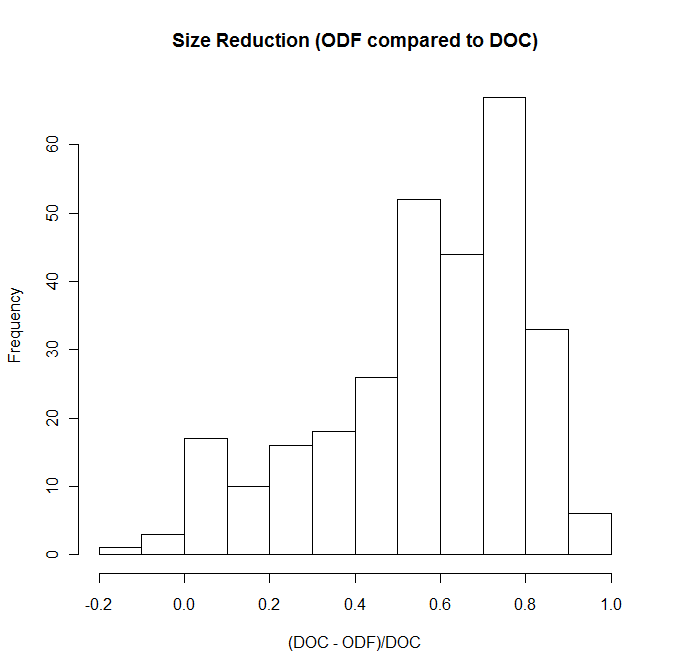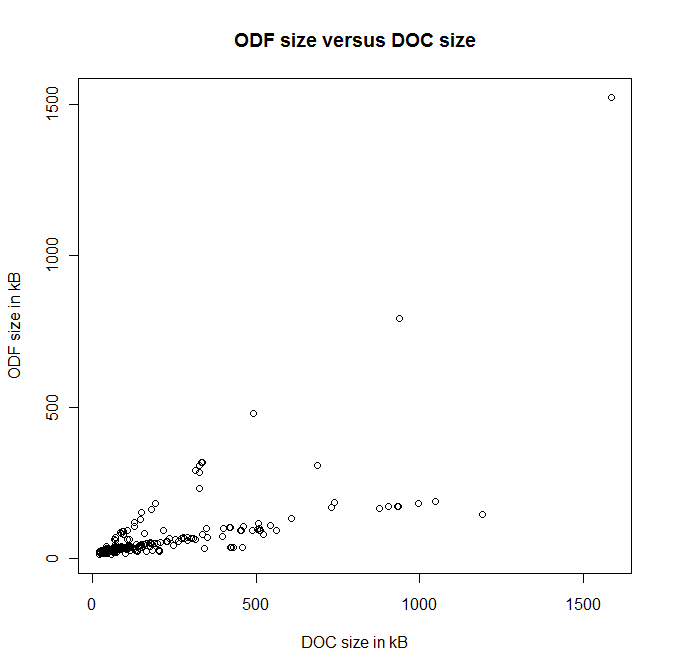A couple of weeks ago I was in Brussels to participate in the 4th ODF Plugfest. I planned on writing up a nice long post about it. But right when I started to draft this blog post, I came across an excellent article in LWN.net by Koen Vervloesem (Twitter @koenvervloesem): ODF Plugfest: Making office tools interoperable. Since his article is far better than what I would have written, I recommend that you go and read that article first, and then come back here for what meager additional scraps of insight I can add.
Go ahead. I can wait. I’ll be here when you get back.
The ODF Plugfest format is a two-day event. On one day engineers from the vendors work together, peer-to-peer, on interoperability testing, debugging, resolving issues, etc. This is done in a closed session, with no press present, and with a gentlemen’s agreement not to use information from this session to attack other vendors. We want the Plugfest to be a “safe zone” where vendors can do interoperability work where it is most needed, using unreleased software, alpha or beta code in some cases. For this to work we need an environment where engineers can do this work, without fear that each bug in their beta product will be instantly maligned on the web. This would be anti-productive, since it would repel the very products we need most to attend Plugfests.
I think customers would be proud to see their vendors putting their differences aside for the day to work on interoperability. Although among the vendors and organizations present there were several fierce competitors, two parties to a prominent patent infringement lawsuit and both sides of a prominent fork of a popular open source project, you would not have guessed this if you watched the engineers collaborating at the Plugfest. A key part to this neutrality is that the Plugfests are sponsored and hosted by public sector parties and universities and non-profits. In this case we were hosted by the Flemish government.
So that was the first day of the Plugfest, and for the details I can say no more, for the reasons I’ve stated.
On the 2nd day we have a public session, with vendors, but also the press, local public sector IT people, local IT companies, etc. The program and presentations are posted. My presentation on ODF 1.2 is also up on my publications page.
A few leftover notes that I have not seen mentioned elsewhere:
- We had great participation from AbiWord, where developers apparently have funding to work on their ODF 1.2 support.
- DIaLOGIKa announced that after their next release they will no longer have funding from Microsoft to continue work on their ODF Add-in for Office. The code, however, will remain as open source. Since Oracle has commercialized the previously free Sun ODF Plugin, this means that there is no longer any free, actively developed means of getting ODF support on Office 2003. If you want ODF support on Office, you must upgrade to Office 2007 or Office 2010.
- Some good demos of new ODF-supporting software, including LetterGen, OFS Collaboration Suite, ODT2EPub and odt2braille.
- Itaapy announced that they were close to releasing a C++ version of their popular lpOD library (already available in Python)
In standards work, on committees with endless conference calls and endless draft specifications and the minutia of clause and phrase, it is too easy to mistakenly view that narrow world as your customer. So when I attend events like this and see the rapid growth of ODF-supporting software and the innovative work that is happening among implementors, I return reinvigorated. These are the real customers. This is what it is all about. I’m already looking forward to the next ODF Plugfest.



